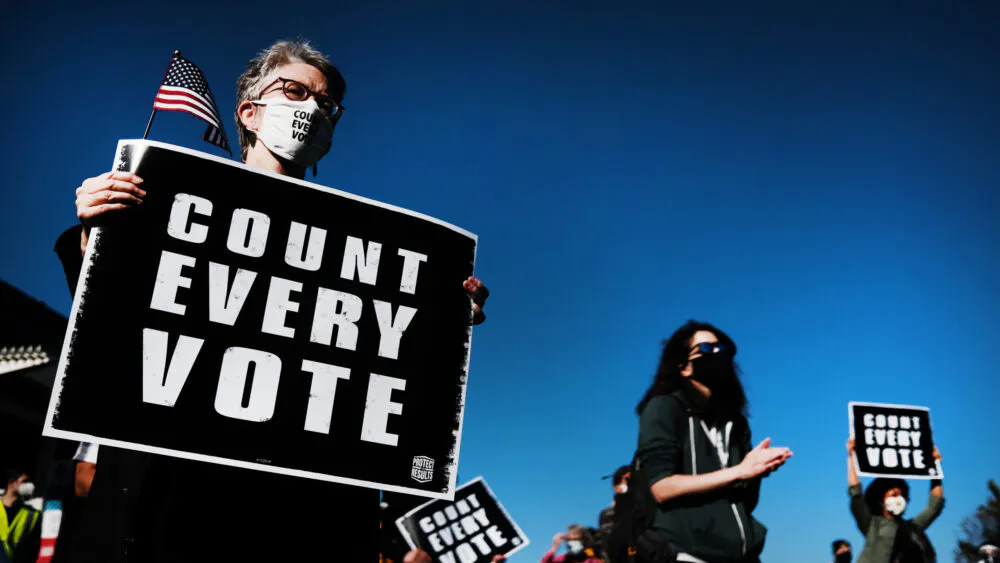When election day turned into election week and now election month, the bated breath with which we waited for results has turned our faces blue from a lack of oxygen and now red from anger and distrust. It’s like the opposite of CNN’s electoral map where everything turns red first, then blue.
Americans has been forced to sit on their hands and wait for the excruciatingly sluggish process of counting votes, a practice some states seemed prepared to handle while others…not so much. Consider that Florida — a state with over 10 million votes — was called a little after midnight while Pennsylvania — a state with over 6million votes — was called four days after the election.
There’s one huge reason why Florida was able to count its votes so quickly: state election laws. Florida started counting mail-in ballots on October 12, which means that up to election day, they counted votes as they came in. Pennsylvania on the other hand, did not start processing mail-in ballots until the morning of election day.
Why the difference? According to a tweet from former Florida Governor Jeb Bush, “we learned our lesson in 2000 and changed our laws.” Seems easy enough, yet only 10 states have laws that allow them to count ballots prior to election day.
It’s almost like we should’ve seen this coming. If only there was something regularly covered in the news that could’ve given us a hint that there would be more mail-in ballots than usual. Well, yes, there was. But instead of seeking provisions to begin counting ballots early, Pennsylvania (along with North Carolina) sought to extend deadlines past election day to allow voters to submit ballots later.
That’s right, instead of choosing to count ballots earlier, they removed a hard deadline and encouraged people to submit votes later. Not only did this lead to confusing election day coverage, but it also contributed to the uncertainty surrounding the rest of election week—uncertainty that still lingers today.
But let’s not blame it all on Pennsylvania. They’re not alone. Thirteen days after the election, the NYT estimates that Manhattan and Westchester, New York have reported only 60% of their ballots. In New Jersey’s 8th District, just 67% of the vote has been reported and in California, Lake County has reported just 40% of their votes. That is fewer than half of the votes counted in two weeks.
This data alone may not legitimize Trump’s claims of election fraud, but it does serve as a reminder that America might not be as adept at running elections as some would like to think. We still leave ample room for human error, plenty of reasons for contested results, and plenty of extra time for uncertainty and doubt.
Today, the American people want clarity around who they just elected to lead them, and with the election in the rearview mirror, we still don’t have it. But in a truly American twist, the fault for the uncertainty lies in the hands of local governments—the people who have chosen to unnecessarily delay the counting of votes.
The good news? If you don’t like the way your state counts votes, you can vote for someone else to run it.

Continue reading this exclusive article and join the conversation, plus watch free videos on DW+
Already a member?

.png)
.png)

